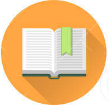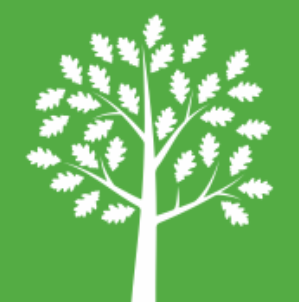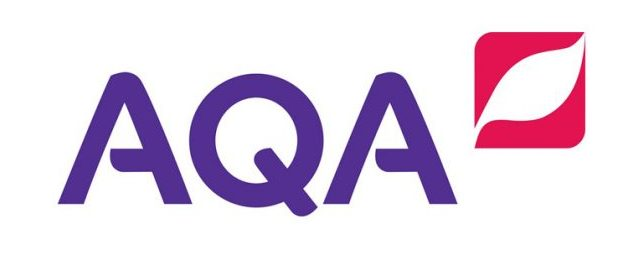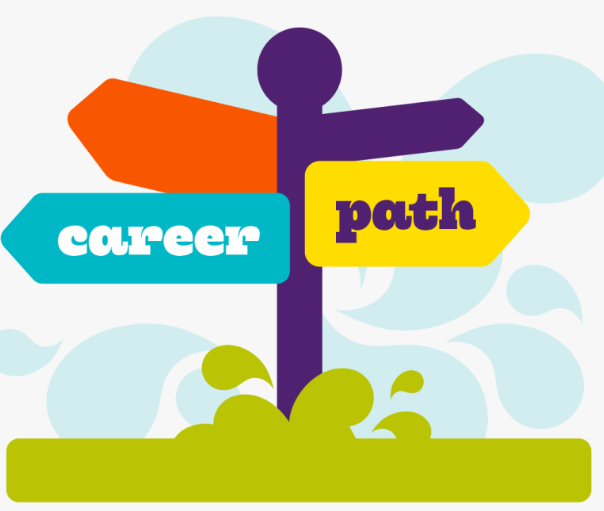Curriculum
We are very proud of the diverse, inclusive and inspiring curriculum we offer our students at KS3 within a small, supportive and nurturing environment; which re-engages them with their learning, develops self-confidence and supports them in reaching their full potential.
 Art and Design
Art and Design
Our creative, engaging and inspiring Art and Design curriculum gives students the opportunity to create their own works of art as well as giving students the knowledge, skills and space to feel confident enough to design, experiment and be expressive. We actively celebrate and encourage individual creativity and for students to ‘have a go’; we want students to feel proud of their efforts; work and achievements. Our curriculum allows students to experience and trial a variety of different art forms, these may include: painting; drawing; sculpture; photography; collage; mosaic. We have a well resourced and dedicated Art and Design room (but art may also take place in class and outdoors), where students are able to make use of a variety of materials and tools.
Art and Design skills developed:
- ‘having a go’ and trying new things
- concentration and focus
- thinking creatively
- being brave and taking risks (experimentation)
- following the design process from initial ideas to a final piece
- be willing to work independently (this may include imitating an art form or artist)
- researching artists, different art forms and art/design in other cultures
- brainstorming and collecting ideas, examples and inspiration
- perseverance and to be resilient to set-backs and the ability to problem solve and try again
- selecting appropriate resources and tools
- taking ownership of own work and work station
 Catering
Catering
At KS3, there is a fully equipped catering room so that all students have their own space to work in a safe and organised way. The students will have the opportunity to create a range of sweet and savoury dishes such as tacos, meatballs, chocolate roulade and apple crumble!
Catering skills developed:
- following a recipe
- measure out ingredients
- work as a team
- work safely and responsibly
- develop your core skills in: mixing; chopping; grating etc
- choose the correct utensils and equipment
- work in a hygienic manner
- be willing to share or make food for others
- wash and tidy up
- consider what makes a balanced and healthy diet
- understand the cost of food and budgeting
 Computing
Computing
Students will be taught digital literacy as well as developing computer skills for their future in the workplace; alongside being given opportunities to use computational thinking and creativity skills. Computing will often be used side-by-side with Literacy as a method of strengthening written and presentation skills. Every student is given their own individual log-in and has access to chromebooks.
Computing skills developed:
- fundamentals of google docs, google slides and google sheets
- E-Safety and online responsibility
- Coding
- Using search technologies effectively and evaluating their reliability
- an introduction to touch typing
 English
English
Students will develop a love of literature through immersing themselves in stimulating, relevant and quality texts. They will explore these texts through use of questioning, analysing and discussion based activities so that they develop confidence and feel prepared when progressing to written tasks.
English skills developed:
- examining fiction and non-fiction texts and learn to write about these in a formal and structured way
- reading a variety of texts and choosing a longer novel to work on in more depth
- developing retrieval and inference comprehension skills
- providing opportunities to develop speaking and listening and presenting skills
- the different purposes of writing and the conventions that these require
- learning how to write different text types and the features of each
- developing grammar and spelling skills
- enhance empathy and an understanding of our emotions through emotional literacy studies
 Geography
Geography
Students will travel the world from the comfort of their classroom by following a curriculum based around both human and physical geography that inspires curiosity.
Geography skills developed:
- exploring other countries, cultures and customs whilst thinking about the benefits of multicultural societies
- knowledge of globes, maps and atlases – the continents and the countries within them
- climate change and eco-issues, considering our role to play in this
- comparative studies between the UK and other European and International countries
- Earth’s key physical processes and natural disasters
- developing research, analysis, communication skills and drawing conclusions from geographical data
History
As if travelling back in time, students study a number of significant events to gain a better knowledge and understanding of challenges for Britain, Europe and the wider world; history of the local area and the reformation of the church.
History skills developed:
- the ability to understand, question and reflect on the challenges for Britain, Europe and the wider world 1901-present
- developing knowledge of Britain before 1066
- understanding methods of historical enquiry: asking questions, thinking critically and making links between evidence
- analysing the diversity of societies and their changes over time
- Questioning and debating a significant society issue which is interconnected to other world development
 Maths
Maths
In Maths, the aim is to ensure every pupil feels supported and confident to achieve their maximum potential as the foundations are established in algebra, number, geometry and data handling for work at GCSE level. Furthermore, the maths curriculum aims to fill missing gaps in knowledge, skills and understanding; students are given plenty of time and opportunities to acquire skills and develop their fluency of these skills.
In addition, the students will have opportunities to learn and explore maths in the real world through a range of topics such as budgeting, savings, tax, income, financial planning and world currencies.
 Physical Education
Physical Education
At KS3, students are given the opportunity to immerse themselves in a range of exciting and adventurous activities as well as theory related lessons so that they can understand the importance of a healthy diet and exercise. We have good local links with a number of providers in and around the area and students spend half a term on each activity to build up their confidence and skills
Example PE activities that may be offered:
- kayaking
- golfing
- climbing
- boxing
- gym sessions
- outdoor and adventurous
- orienteering
- survival skills
- croquet
 RSHE/PSHE
RSHE/PSHE
In line with statutory guidance, we offer Relationships, sex and health education (RSHE) at KS3 Malden Oaks, which comprises learning about the emotional, social and physical aspects of growing up; relationships; sex; human sexuality and sexual health. We endeavour to ensure our RSHE curriculum equips students with the information, skills and positive values to have safe, fulfilling relationships and to understand and take responsibility for their own well being.
Alongside RSHE, we also teach PSHE (Physical, Social, Health, Economic) education lessons which also cover: economic well being, careers & enterprise education, and personal safety (including assessing and managing risk). Learning opportunities are spread across three core themes:
- Health and Wellbeing
- Relationships
- Living in the Wider World
The programme of study will be responsive to your individual learning needs; local circumstances and current affairs and will focus on promoting values that ensure you develop a strong sense of social and moral responsibility as well as providing you with knowledge, understanding and skills to prepare you for life in modern Britain as a happy, well rounded and informed citizen. You are also encouraged to learn about the different religions; festivals and significant days celebrated in the UK as well as British Values.
 Science
Science
In Science, the aim is to build on the knowledge and understanding of biology gained during Key Stage 2 and provide a firm foundation for further study at GCSE. The scientific process is taught, with opportunities to plan, investigate, record, conclude and evaluate practical investigations.
- Students will study plants and animals at a cellular level, and then learn how the cells work together to make tissues, organs and organ systems.
- Several organ systems are studied, such as the respiratory, skeletal and reproductive systems in mammals, and reproduction in plants and humans.
- Learning about the structure and function of the digestive system in mammals, healthy lifestyle, photosynthesis, inheritance, variation, evolution and interdependence.
 Outdoor Learning
Outdoor Learning
Through the caretaking of our grounds, allotments and wildlife each student will be given opportunities to learn outside of the classroom. We cover the following:
- Outdoor Art
- Conservation
- Wildlife
- The seasons
- Growing our own food
- Cooking outside
- Building for purpose
- Horticulture
- Survival (fire making)
- Forest school
- Assessing Risk
 The 4 A’s Curriculum
The 4 A’s Curriculum
The 4 As (attachment, altruism, autonomy and achievement) underpin all our learning. It is important all students are given opportunities to develop skills within these school values; for example: the ability to empathise and show altruism through off site learning, trips, volunteering and by engaging with visitors to the school.
Examples of our 4 As curriculum:
- Pet therapy
- Forest school (on or off site)
- Links with Proud places taking part in workshops on stone masonry, archaeology
and landscaping
- Volunteering at the local Nursing Home
- Volunteering at a primary school
- Volunteering at a local allotment run by the police community team
- Sourcing produce for the local community
We continuously seek opportunities for extra-curricular learning which develop the student as a whole. We personalise learning where necessary and are able to offer experiences and opportunities guided by students’ interest and need.
 AQA Awards
AQA Awards
The Unit Award Scheme (UAS) is a unique recording of achievement scheme, offering students the opportunity to have their achievements formally recognised with a certificate each time a short unit of learning is successfully completed. KS3 students are offered the opportunity to complete Unit Awards every half term and they may be linked with the current curriculum; extra-curricular opportunities and/or students’ individual interests. These certificates are displayed in an individual Record of Achievement, which every student will leave Malden Oaks with, as an exemplar of their progress and accomplishments and a reminder of their journey whilst attending here.
 Careers
Careers
It is important for the students to learn about a range of careers and work opportunities as well as the key skills needed to be successful in future employment. Students will take part in set lessons developing these key skills as well as explicit links through all key subjects and activities.
We look forward to supporting students on their learning journey.
